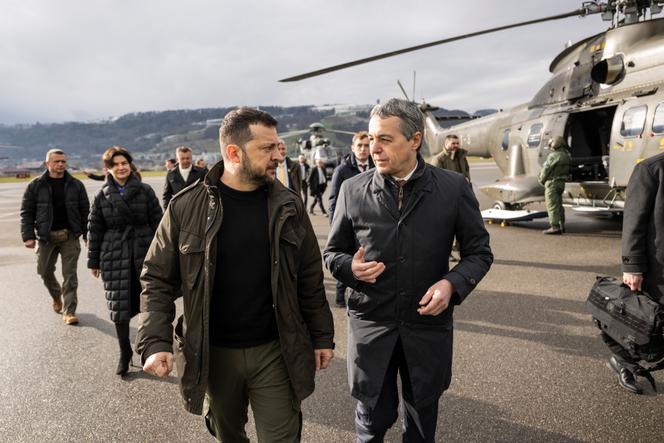


What is the point of talking about a hypothetical peace, when artillery pounds Ukraine's front line and missiles continue to target civilians in Ukrainian towns every day, as on Wednesday, June 12, when nine people were killed and 29 wounded in a Russian strike on the center of Kryvy Rih, the hometown of Ukrainian President Volodymr Zelensky? This question will loom large over the strange summit, called the "High-Level Conference on Peace in Ukraine," to be held this weekend at the luxurious Bürgenstock resort in central Switzerland. A Swiss diplomat organized the meeting after Zelensky asked him, in January, to imagine a summit of this kind.
Bern took the matter very seriously, arguing that its status as a neutral state and its long-standing experience as a mediator in conflicts put Switzerland in a good position to offer its "good offices," an antiphon taken up again and again by Ignazio Cassis, the Swiss minister of foreign affairs. Over the past three months, he has spared no effort in convincing as many countries as possible to take part in the "summit on peace" (and not "for peace"), by traveling to New Delhi and Beijing, for example.
After a long period of pretending to be interested, the Chinese authorities declined the offer. They will not be going to Bürgenstock. Their presence might have unlocked the participation of other BRICS members. In the late afternoon on Friday, June 14, Bern unveiled its first official list of confirmed participants. Apart from India (which is sending its... Russian ambassador to Switzerland), no other major players from the Global South are participating, with Brazil and South Africa content to send observers.
Saudi Arabia is represented by its Foreign Minister Faisal bin Farhan Al Saud. Those present, or not, represent the main stakes of the meeting, since taking, or not taking, part is equal to choosing sides between defending Ukraine and supporting the Kremlin, however passively. On the African side, the President of Côte d'Ivoire Alassane Ouattara is the only one to make the trip.
The Russians will not be attending. They have denounced for weeks this diplomatic exercise as a "farce, an absurdity." Aware of the rejection they would have suffered, the Swiss did not bother to send an invitation, even though Cassis repeated at a press conference in Bern on Monday that "There will be no peace without Russia’s word. The question is not whether Russia will be on board, the question is when."
A few hours before the meeting in Switzerland, Vladimir Putin sent a new message that was as unrelenting as it was chilling. He said on Friday that he would only negotiate with Ukraine when "[it] begins the effective withdrawal of troops [from the regions of Donetsk, Luhansk, Kherson and Zaporizhzhia] and notifies the abandonment of its NATO membership project. We will immediately, this very minute, give the order for a ceasefire and the start of negotiations." Russia's territorial claims to these four oblasts, some of which it has already annexed, "are illusions that we must get rid of and stop taking seriously," said Mykhailo Podolyak, adviser to the Ukrainian president. For NATO Secretary General Jens Stoltenberg, the Russian offer is "not in good faith."
You have 41.86% of this article left to read. The rest is for subscribers only.
